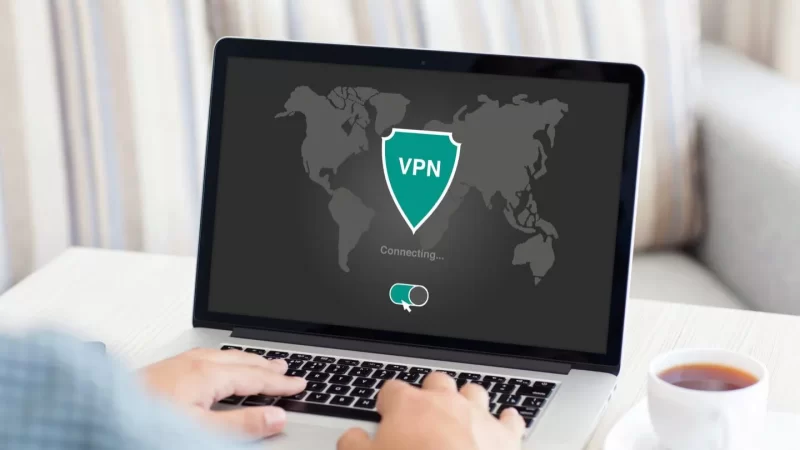
How to Set Up a VPN Connection: A Step-by-Step Guide
In today’s digital age, where privacy and security are paramount concerns, setting up a Virtual Private Network (VPN) connection has become essential. VPNs provide a secure and encrypted tunnel for your internet traffic, protecting your data from potential threats and allowing you to access online content without restrictions. This article will guide you through the process of setting up a VPN connection, ensuring that your online activities remain private and protected.
Understanding VPNs
What is a VPN?
A VPN, or Virtual Private Network, is a technology that establishes a secure and encrypted connection between your device and the internet. When you connect to a VPN server, your internet traffic is routed through the server, making it appear as though you are accessing the internet from the server’s location. This process masks your IP address and encrypts your data, enhancing your online privacy and security.
Why Use a VPN?
There are several compelling reasons to use a VPN:
- Enhanced Security: VPNs encrypt your data, protecting it from hackers and cybercriminals who may try to intercept your internet traffic.
- Privacy Protection: VPNs hide your IP address and prevent websites and advertisers from tracking your online activities.
- Bypassing Restrictions: With a VPN, you can access geo-restricted content and websites blocked in certain regions.
- Public Wi-Fi Security: When connected to public Wi-Fi, a VPN ensures that your data remains secure from potential eavesdroppers.
Choosing the Right VPN
Consider Your Needs
Before setting up a VPN, consider your specific requirements. Different VPN providers offer various features, such as speed, server locations, and simultaneous connections. Determine what you need the VPN for, whether it’s for streaming, torrenting, or business purposes, and choose a provider accordingly.
Research VPN Providers
Do thorough research on different VPN providers. Read reviews, compare prices, and check their privacy policies to ensure they have a strict no-logs policy. Opt for a reputable and well-established VPN service to ensure reliability and security.
Setting Up the VPN
Step 1: Sign Up and Download
Visit the VPN provider’s website and sign up for an account. Once you have created an account, download the VPN app for your device. Most VPN providers offer apps for various platforms, including Windows, macOS, iOS, and Android.
Step 2: Install the App
After downloading the app, install it on your device. Follow the on-screen instructions to complete the installation process.
Step 3: Launch the App and Log In
Launch the VPN app and log in using the credentials you created during the sign-up process.
Step 4: Choose a Server
Once you are logged in, the app will present you with a list of VPN servers located in different regions. Choose a server based on your needs and click connect.
Step 5: Enjoy the VPN Protection
Congratulations! You are now connected to a VPN server, and your internet traffic is secure and encrypted. You can browse the web, stream content, and access restricted websites with peace of mind.
Tips for Using a VPN
Keep the VPN App Updated
Regularly update your VPN app to ensure you have the latest security patches and improvements.
Use Strong Passwords
Choose a strong and unique password for your VPN account to prevent unauthorized access.
Disconnect When Not in Use
Disconnect from the VPN when you’re not actively using the internet to conserve bandwidth and improve connection speeds.
Try Different Servers
Experiment with different VPN servers to find the one that offers the best speed and performance for your specific needs.
Conclusion
Setting up a VPN connection is a straightforward process that can significantly enhance your online security and privacy. By following the steps outlined in this guide, you can establish a secure connection to the internet and enjoy unrestricted access to online content. Remember to choose a reliable VPN provider, keep your app updated, and practice good online security habits. Stay safe and protected in the digital world with a VPN!
FAQs
Q1: Can I use a free VPN instead of a paid one?
A1: While there are free VPN services available, they often come with limitations and may not provide the same level of security and speed as paid VPNs. It’s advisable to invest in a reputable VPN for the best protection.
Q2: Can a VPN slow down my internet connection?
A2: Yes, using a VPN can slightly reduce your internet speed due to the encryption and routing processes. However, with a good VPN provider, the impact on speed is usually minimal.
Q3: Is it legal to use a VPN?
A3: Yes, in most countries, using a VPN for personal use is legal. However, using a VPN for illegal activities remains prohibited.
Q4: Can I use a VPN on multiple devices simultaneously?
A4: Many VPN providers offer simultaneous connections, allowing you to use the VPN on multiple devices at the same time.
Q5: Are there any websites that can detect and block VPN usage?
A5: Some websites and streaming services can detect VPN usage and may block access. In such cases, try connecting to a different VPN server to bypass the restriction.

